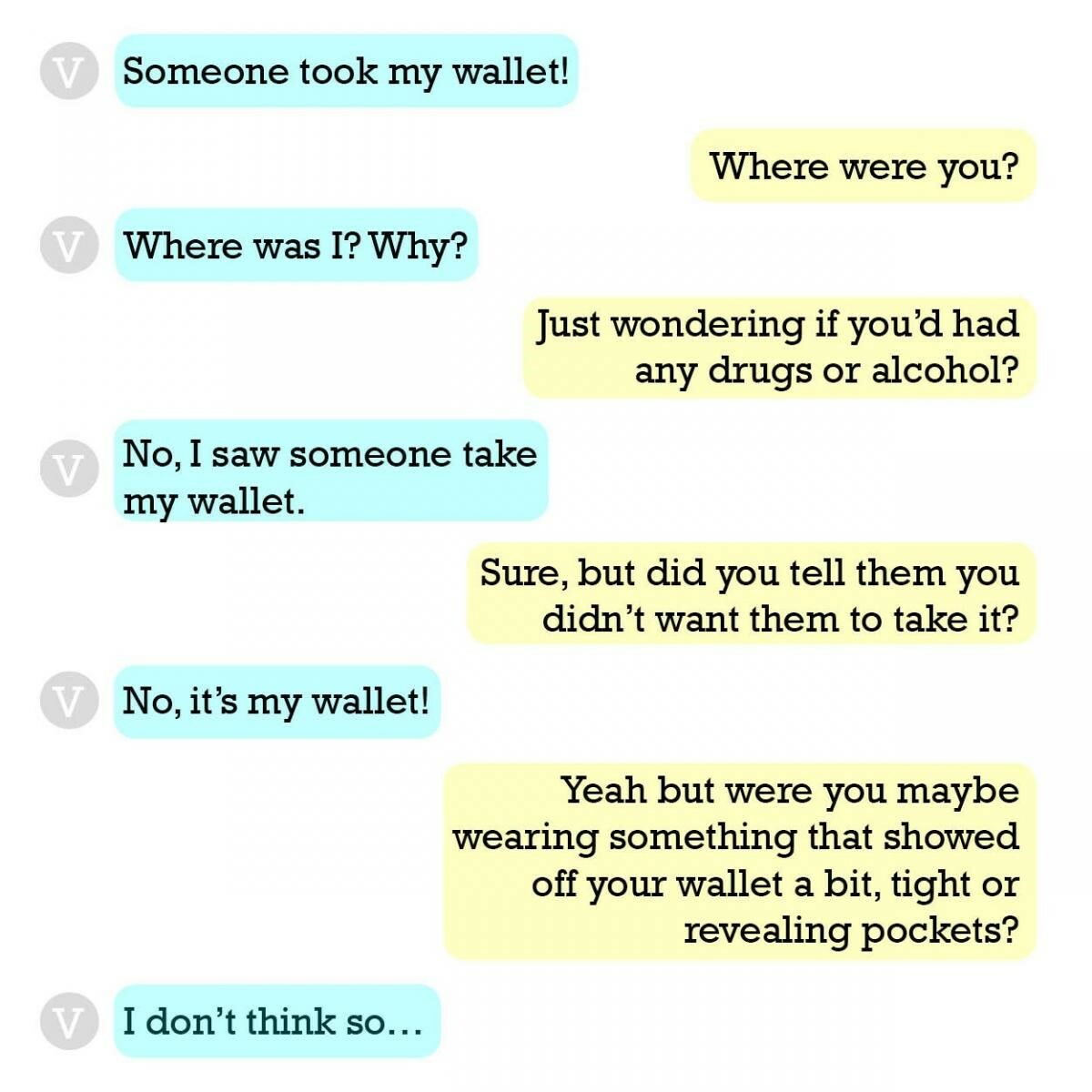Content warning: this article relates to, and talks about sexual assault which may be triggering to survivors.
When someone has their wallet stolen, we don’t ask why they were out so late. We don't ask if they’d been drinking or if they were wearing something that ‘showed off their wallet’.
We don’t treat people this way when they’re robbed because it would be ridiculous and unfair. So, why do we do it when people are sexually assaulted? Obviously, there is no equating the seriousness of consequences of theft of a wallet and sexual assault, but it’s still worth asking:
Why do so many people question the actions or circumstances of someone who’s been assaulted – instead of questioning WHYTHEHELL the assaulter did the assaulting in the first place?!?!

Things we need to stop saying when someone is assaulted:
1. "What were they wearing?"
2. "Had they been drinking?"
3."Why were they out so late anyway?"
4. "Had they hooked up before?"
Why? Because concentrating on victims’ circumstances suggests they should have changed their behaviour, that they could have avoided it if they’d been more careful. This is when we start to shift blame from the perpetrator– who is the ONLY guilty person here!
Of course, we all take precautions for our personal safety - but it's too easy to think we're only concerned for people's safety, when actually we're shifting our attention from the problem - perpetrators - and instead telling victims, "You did the wrong thing by... [doing that/going there/wearing that, etc]"
Gender stereotypes and sexism are related to violence
From a young age, we’re shown unhealthy and outdated stereotypes of men as sexually dominant and aggressive, and unable to control their urges; while women and girls are made out to be submissive and weak, and told not to be too ‘sexual’ in case they give men ‘the wrong idea’. These types of messages are really harmful.
The good news is we can change these worrying attitudes and behaviours – but we have to stop making excuses for perpetrators and potential perpetrators, and call out harmful victim-blaming attitudes.
‘Innocent until proven guilty’
Nobody’s saying everyone accused of a crime is automatically guilty. It is possible – and advisable – to concentrate on supporting victims rather than judging the accused. It’s also not your job to make a judgement – unless you’re a jury member!
This is about you believing someone who says they’ve been sexually assaulted, in the same way you would believe someone who says they’ve been robbed.
Again, the experience of having a wallet stolen can’t be compared to that of sexual assault. The analogy just shows the serious problems in our attitudes when we question and blame survivors of sexual assault and make them ‘prove their innocence’.
When a wallet is stolen, we support the victim, and question the perpetrator. It’s time we applied the same logic to sexual assault.




